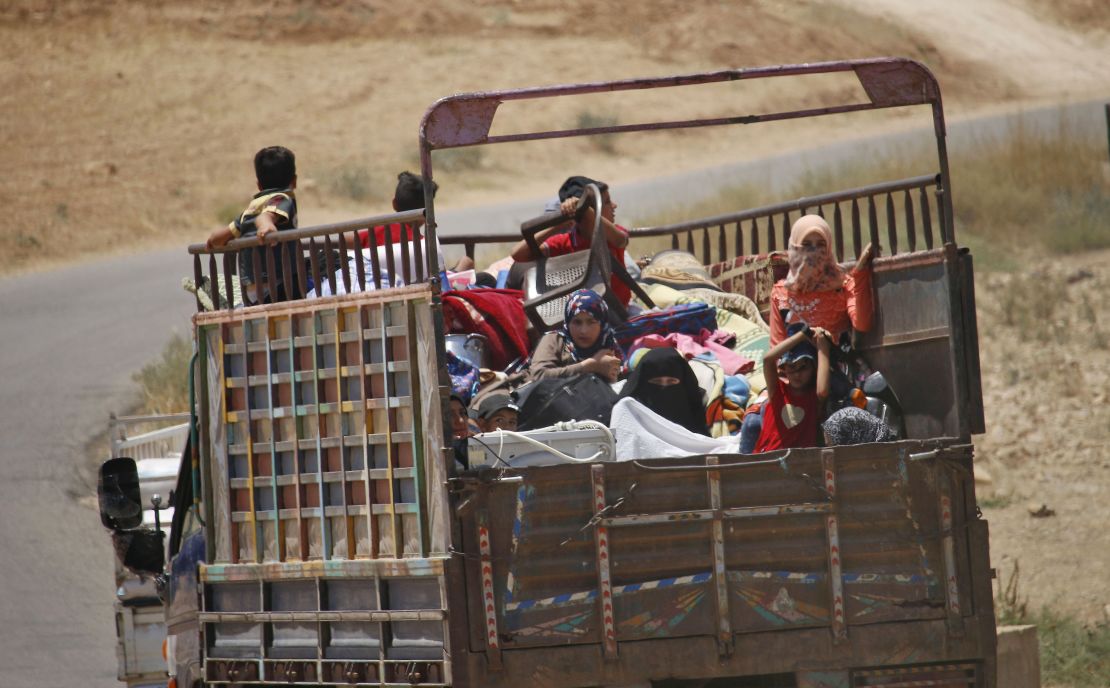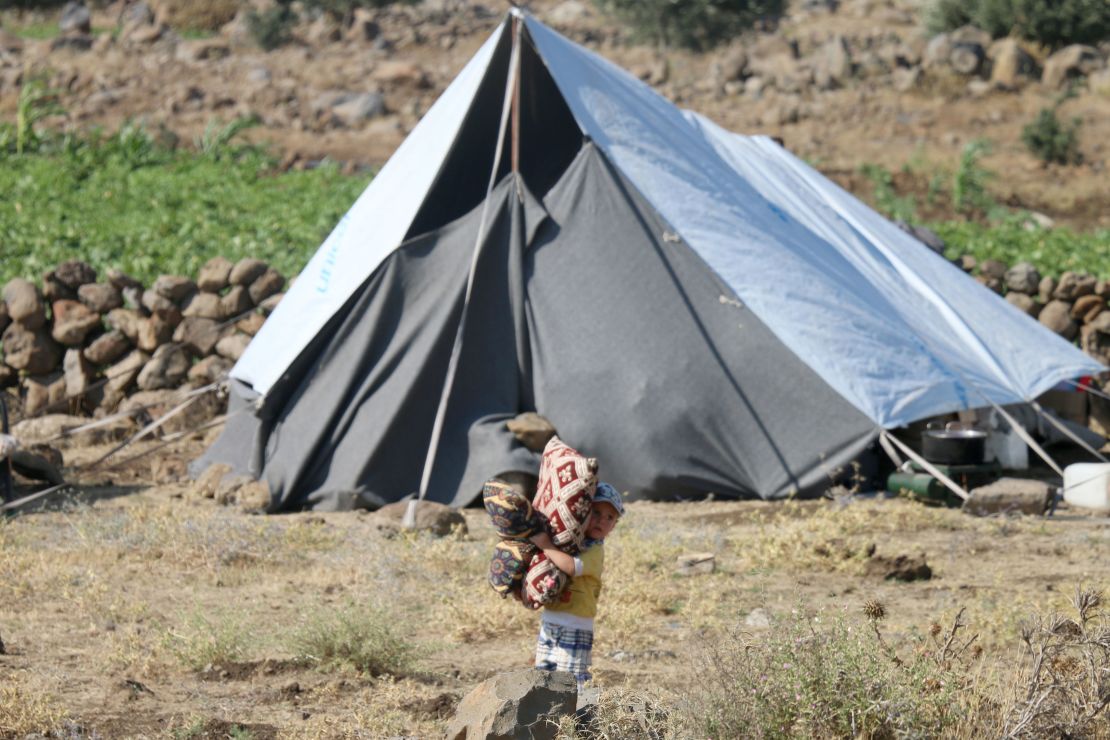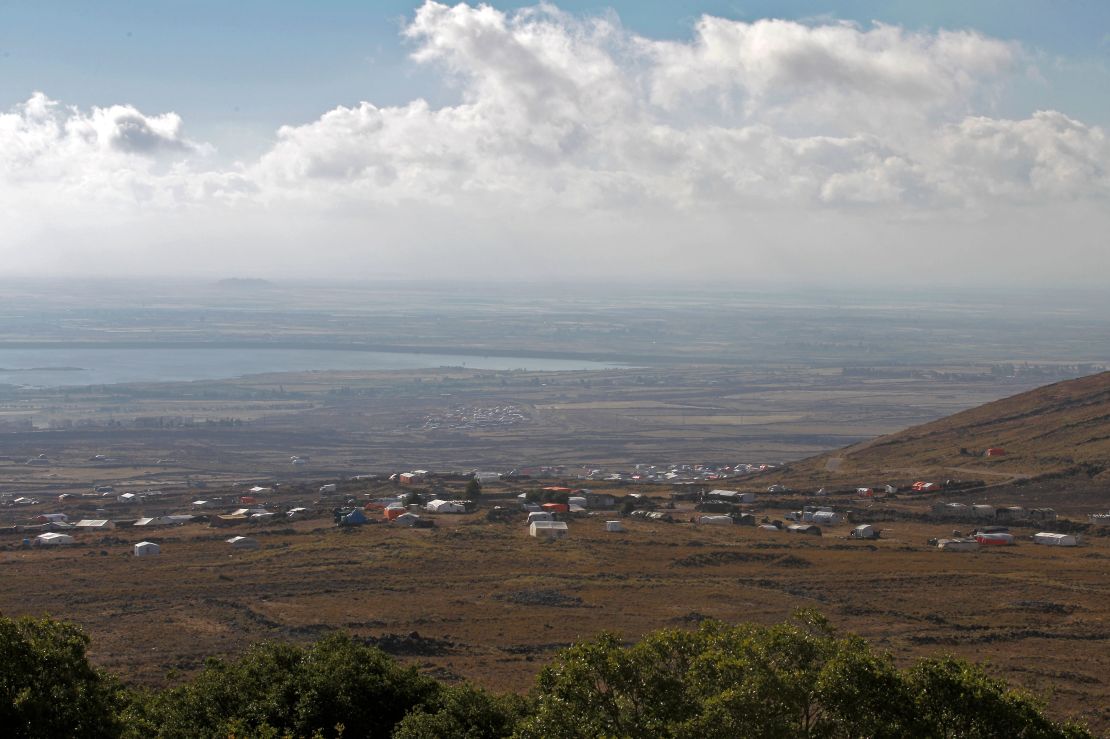Nearly 200 people have been killed in a Syrian government offensive against Islamist fighters and rebels in the country’s southwest, forcing tens of thousands of people to flee toward the closed borders with Jordan and the Israeli-occupied Golan Heights, according to activists and monitoring groups.
The groups say about 120,000 people have been displaced by the Russian-backed Syrian regime’s offensive to take Daraa province. Syria is wresting control from the Turkish-backed Free Syrian Army, as well as terror groups ISIS and Jabhat Fateh al-Sham.

Jordan and Israel are providing aid to the displaced but are refusing to allow Syrian refugees inside their countries. Jordan is already hosting 1.3 million Syrian refugees but closed its borders in 2016 after an ISIS suicide attack killed six of its border guards. The attack happened at a displacement camp in a demilitarized zone between Syria and Jordan. Israel does not typically take in Syrian refugees, except to give them medical treatment.
Airstrikes continued Friday, a day after 55 civilians and 10 fighters were killed in aerial bombardment and shelling, according to the local Daraa Martyrs Documentation Office monitoring. Sixteen children were among the dead on Thursday. The Syrian government said civilians were also fleeing armed opposition groups.
The White Helmets volunteer rescue group said Thursday was the deadliest day since the operation launched on June 19. The Daraa Martyrs Documentation Office has recorded 198 deaths in the whole operation.
The UN said recently that more than 920,000 people had been displaced inside Syria during the first four months of 2018, the highest number recorded over the country’s seven-year war.
Israel and Jordan keep borders shut
Israel has transferred four shipments of humanitarian aid to the displaced living in tent camps in four locations near the Golan Heights border, according to a statement by the Israel Defense Forces (IDF).
It said it had delivered 300 tents, 13 tons of food, 15 tons of baby food, three pallets of medical equipment and medicine, and 30 tons of clothing and footwear.
The army said thousands of Syrians were living in poor conditions in these camps, often lacking access to water, electricity, sources of food or other basic necessities. The number of Syrians living in the camps has been increasing in recent days, the army said.

Saqer Al-Mohammad, 21, a displaced man from Nawa, in the Daraa region, spoke to CNN at the tent camp near the Golan Heights, saying he and others had been waiting there for a week.
“We fled because of the indiscriminate bombing that never stops. Every day there is a massacre in Nawa. The situation is so terrible. We have been here for a week and we have seen zero help. No water, no food – it’s a catastrophic situation.”
The IDF reiterated in its statement Friday that the country “cannot permit Syrians fleeing hostilities to enter Israel, and will continue maintaining Israel’s security interests.”
“The IDF is closely monitoring the events transpiring in southern Syrian and is prepared for a wide variety of scenarios,” the statement said.
The UN’s humanitarian envoy to Syria, Jan Egeland, appealed to Jordan to open its borders to those fleeing the violence.
“Movement is very difficult and humanitarian operations are paralyzed in too many areas. Of course our appeal goes to Jordan, one of the most generous recipients of refugees on earth that they keep the border open for people fleeing south. There is no other place to go,” Egeland told reporters Thursday at the UN in Geneva.

But Jordan’s Foreign Minister Ayman Safadi said that the resource-poor kingdom had “reached its capacity.”
“For those who are trying to put pressure on Jordan, I would put to them the question – what have others given compared to what Jordan has given?” Safadi told reporters at the UN Thursday after meeting the UN secretary-general.
“Jordan has borne its responsibility and – to be honest – has borne it mostly alone. We are grateful for the support of the international community, but the brunt of the responsibility was on us.”
The Syrian civil war has continued for more than seven years, with several international powers backing different forces in the conflict.
After losing swathes of territory to ISIS militants and opposition rebel groups, the Syrian regime gained an upper hand in the conflict by reclaiming the city of Aleppo in December 2016 and later seizing several other strategic areas with the backing of Russia and its bomber jets.
Kremlin spokesman Dmitry Peskov said he expected the Syria conflict to be “discussed comprehensively” at a July 16 summit between US President Donald Trump and Russian President Vladimir Putin in Helsinki. Trump had previously ordered US airstrikes on Syrian government targets following suspected chemical attacks in the country, widely blamed on the government of Syrian President Bashar al-Assad. Russia supports Assad and the Syrian conflict has been a source of Russian-US tensions for years.
CNN reported this week that Trump raised the idea of pulling the US out of Syria during a meeting earlier this week with King Abdullah II of Jordan at the White House, according to two diplomatic sources familiar with the meeting.
CNN’s Andrew Carey and Mary Ilyushina contributed to this report.


